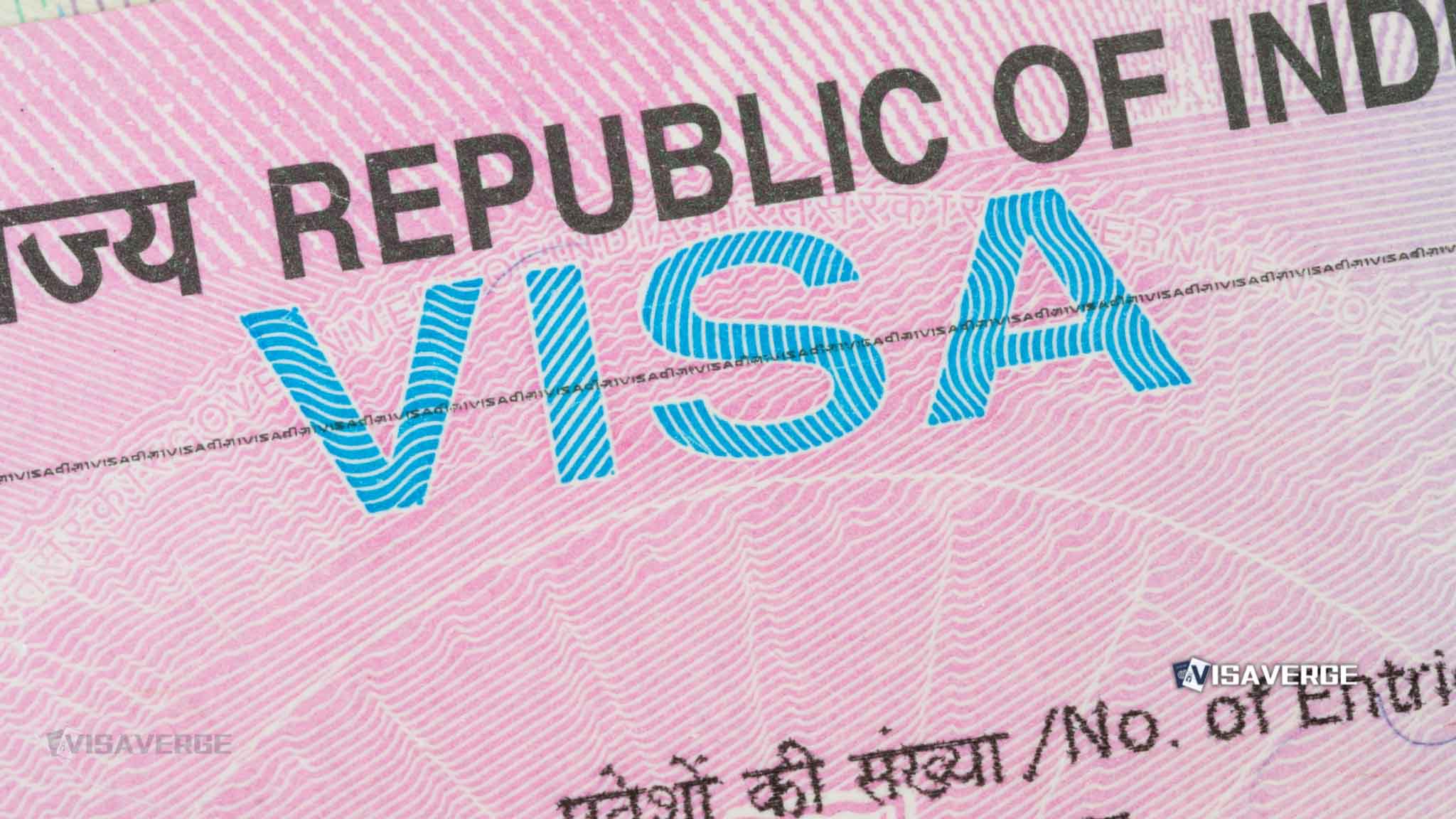Key Takeaways
- The remarks section on UK visas outlines conditions, permissions, and restrictions, essential for compliance with immigration rules.
- It includes details like work limits, travel conditions, sponsor information, and healthcare surcharge confirmations specific to visa types.
- Misinterpretation or errors in the remarks can cause severe consequences; seeking official clarification or corrections is highly recommended.
The remarks section of a UK visa plays an important role in outlining specific details, conditions, or restrictions associated with your visa. If you’re preparing to travel, work, or study in the UK 🇬🇧, it’s essential to understand the purpose of this section and what it signifies. Here’s an in-depth look at how the remarks section is used, the type of information it typically contains, and why paying close attention to it is necessary for ensuring compliance with UK immigration rules.
What is the remarks section on a UK visa?

The remarks section is a designated area on your UK visa vignette (the physical sticker in your passport) or on your biometric residence permit (BRP) that contains additional comments or conditions related to your visa. This part of the visa includes specific instructions or information about what you are permitted to do—or, in some cases, not allowed to do—during your stay in the UK. The remarks section helps clarify your visa’s purpose and ensures both you and immigration officials fully understand the conditions of your entry and stay in the country.
For example, if you’ve been issued a Student visa for a university course, the remarks section might include work restrictions, indicating how many hours you’re allowed to work part-time while studying. Alternatively, if you’re entering the UK on a Skilled Worker visa, this section could outline limitations related to switching employers or qualifying for permanent residency.
Why is the remarks section important?
The remarks section provides clear and legally binding information. It ensures that travelers and residents adhere to the UK’s immigration policies without unintentionally violating their visa conditions. Many individuals overlook this section, but failing to comply with its stipulations can result in severe consequences. These may include fines, legal issues, or even deportation.
By understanding what’s in this section, you can ensure you meet all the UK government’s requirements while avoiding misunderstandings. Immigration officers also rely heavily on this area to verify that a person is adhering to their approved activities while staying in the UK.
What type of information appears in the remarks section?
The remarks section includes vital details specific to an individual’s visa type, category, and intended purpose in the UK. Some of the common types of information that may appear are:
1. Work Restrictions
- Student Visa: If you are in the UK on a Student visa, the remarks might indicate restrictions such as “Work limited to 20 hours per week during term-time” or “No work allowed except placement.” These lines clarify how much employment, if any, is permitted for individuals while they study.
- Visitor Visa: For visitors, the remarks often explicitly state that work is not permitted (“No work” or “Restricted activities only”).
- Skilled Worker Visa: If you hold a Skilled Worker visa, the remarks might specify that you can only work for your sponsoring employer unless you meet certain conditions for taking on additional work.
2. Travel Conditions
In certain cases, the remarks might provide details about your ability to re-enter the UK. For example:
– “Multiple entries permitted” clarifies that you are allowed to leave and return to the UK numerous times during the visa’s validity period.
– “Single entry only” means you can enter the UK only once. Any subsequent re-entry would require obtaining a new visa.
3. Healthcare Surcharge Payment Confirmation
The remarks section may confirm that you have paid the Immigration Health Surcharge (IHS), granting you access to the National Health Service (NHS). This is a mandatory fee for most visas longer than six months and is required for legal access to healthcare services in the UK.
4. Study or Employer Information
This section will often include specific details directly tied to your visa purpose.
– For students, the remarks might include the name of their university or course, such as “Eligible to study at [Name of Institution].”
– For Sponsored Workers, the remarks typically mention the name of the sponsoring employer and their sponsorship license number.
5. Dependents or Family Information
If you’re traveling as a family member or dependent of someone in the UK, the remarks might reference the principal visa holder and list any conditions specific to your dependent status. For example, for dependents of Skilled Workers, remarks may say things like “Permitted to work (excluding training roles).”
6. Biometric Residence Permit Collection Instructions
If the UK visa is issued overseas, the remarks section might provide instructions on how and where to pick up your Biometric Residence Permit after arrival in the UK.
7. Endorsements or Additional Rights
Some visas may have extra endorsements in this section, such as whether the individual is eligible to apply for settlement or if there are any exemptions from certain fees. For instance, someone on a Global Talent visa may see specific endorsements granting them pathways to residency.
Real-life Examples of Remarks Section Inclusions
To provide a clearer picture, here are a few examples of real remarks individuals might find:
- Student visa:
“Work 20 hrs max during term time. Study only at [University Name]. Must register police within 10 days of entry.” -
Visitor visa:
“Multiple entry permitted. Max duration: 6 months. No work. No study longer than 30 days.” -
Skilled Worker visa:
“Restricted to employer [Company Name]. Pay above required threshold. Biometrics already provided.”
These specific remarks help both applicants and authorities understand the scope of the visa and prevent non-compliance.
What should you do if the remarks section is unclear or wrong?
It is your responsibility to ensure that the remarks section accurately reflects the terms of your visa. If you are unsure what a particular remark means or if there is an error, it is crucial to address the issue promptly. Here’s what you should do:
- Seek Clarification from Official Sources
If you don’t understand a particular remark, contact an authority for clarification. The UK government provides official resources explaining immigration conditions. You can visit the official UK Visas and Immigration website for further information: www.gov.uk/visas-immigration. -
Request Corrections If Necessary
Errors or discrepancies in your visa, including in the remarks section, should be reported to the authority that issued the visa. This may be the visa application center where you applied or the UK Home Office. It’s critical to resolve any inaccuracies before traveling to or attempting to perform restricted activities in the UK. -
Consult Legal Counsel When Needed
For complex situations, contacting an immigration lawyer or advisor can help ensure all your bases are covered. They can assist in interpreting remarks that may have legal consequences.
Consequences of Ignoring the Remarks Section
Failure to comply with the terms outlined in the remarks section can lead to serious repercussions. Common penalties include:
– Cancellation of your stay permit.
– Temporary or permanent bans on entering the UK.
– Financial penalties or prosecution.
Employers or universities may also face penalties if they fail to ensure their visa-holding employees or students are adhering to their specific visa conditions.
Conclusion
The remarks section of your UK visa is more than just fine print—it provides valuable information about what you can and cannot do while in the UK. Whether it’s rules about employment, travel, or study, understanding this section allows you to responsibly exercise your rights while avoiding potential pitfalls. Always carefully review the remarks on your visa to ensure you remain compliant with immigration laws.
For additional guidance, official resources like the UK Home Office website or consultations from authorized advisors are recommended. As reported by VisaVerge.com, keeping informed about specific visa requirements and conditions is essential for successful international mobility.
UK visa remarks: Why you need to pay attention
The remarks section on a UK visa specifies conditions, restrictions, or instructions tied to your stay. Ignoring or misunderstanding it can have serious legal consequences.
Why it matters:
The remarks section contains legally binding details that dictate what you can and cannot do in the UK, such as work limits, travel permissions, or healthcare access. Non-compliance can lead to fines, deportation, or bans on re-entry.
The big picture:
The UK’s visa system is stringent, and the remarks section ensures both travelers and immigration officials are aligned on the scope of the visa. Understanding this section is critical for staying within the law.
What it includes:
Common categories in the remarks section:
– Work restrictions:
– Student visas: “Work limited to 20 hours per week during term-time” or “No work allowed except placement.”
– Visitor visas: “No work” explicitly mentioned.
– Skilled Worker visas: Tied to a specific employer unless conditions permit additional work.
– Travel conditions:
– “Multiple entries permitted” for unrestricted re-entry during visa validity.
– “Single entry only” for one-time access without reapplication.
– Immigration Health Surcharge (IHS): Confirmation of NHS access for long-term visa holders.
– Purpose-specific details: Remarks may reference your university, employer, or sponsorship details.
– Dependent conditions: Instructions specific to visa dependents, such as limited work rights.
Between the lines:
Errors in the remarks section can complicate your stay. Missteps—whether unintentional or from unclear instructions—can be costly.
What to do if it’s unclear or incorrect:
- Seek clarification: Consult official resources like the UK Visas and Immigration site.
- Request corrections: Report inaccuracies to the visa issuance authority or the UK Home Office.
- Consult legal counsel: For complex issues, contact an immigration advisor or lawyer.
Yes, but:
Even with guidance, not all individuals closely read their visa remarks. Misunderstanding key terms, like work limits or dependents’ rights, is surprisingly common.
The bottom line:
The UK visa remarks section isn’t just fine print—it’s your guide to legal compliance. Understanding it allows you to make the most of your stay while avoiding serious penalties. Always review it carefully and seek expert advice when in doubt.
Learn Today
Remarks Section: A part of a UK visa containing additional comments, conditions, or restrictions about the visa holder’s activities or rights.
Biometric Residence Permit (BRP): A physical card issued in the UK containing a visa holder’s personal details, immigration status, and biometric data.
Immigration Health Surcharge (IHS): A mandatory fee for visa holders staying in the UK over six months, granting access to National Health Service (NHS).
Skilled Worker Visa: A UK visa allowing employment with a sponsoring employer subject to specific conditions outlined in the remarks section.
Settlement: A legal immigration status in the UK allowing indefinite stay and access to benefits, sometimes noted in the visa remarks.
This Article in a Nutshell
The UK visa remarks section is vital, detailing restrictions or privileges like work hours, travel limits, or study conditions. Ignoring it can lead to penalties or deportation. Always review and understand it. Seek clarification if unclear—compliance ensures a smooth UK stay. Remember, this section safeguards your immigration rights and responsibilities.
— By VisaVerge.com
📚
Related Articles
01
UK Visa Observations Section Explained
→
02
Illinois Governor: Deport Violent Illegal Immigrants, Open to Talks with Trump
→
03
Trump’s Border Czar Threatens Jail for Denver Mayor Over Deportation Resistance
→
04
Sample Employer Letters for an Initial H-1B Visa Application
→
05
Common L1 Visa Tax Mistakes and Their Implications for Visa Holders
→








